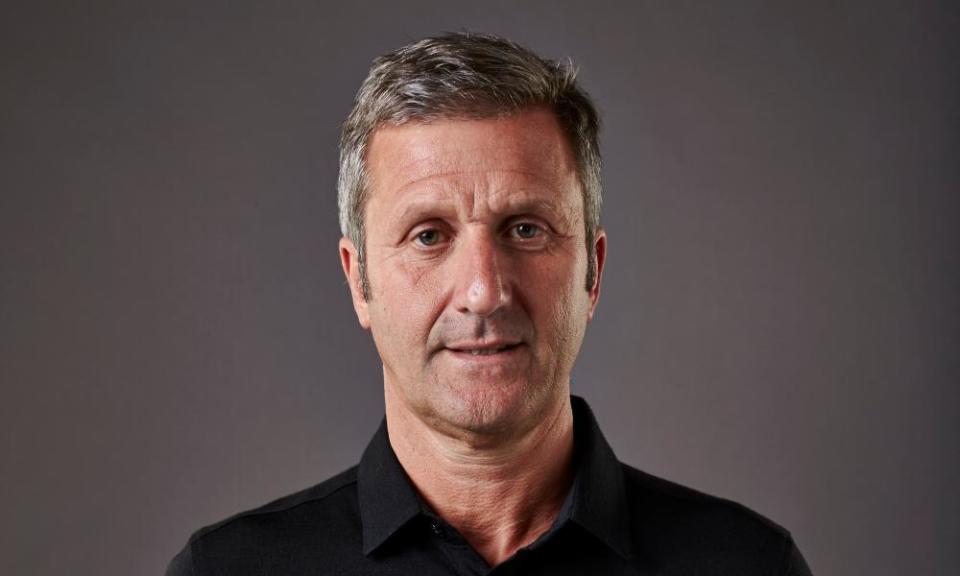British Cycling allows resignation of doctor at centre of Jiffy bag scandal

The doctor at the centre of the Team Sky and Bradley Wiggins Jiffy bag scandal has resigned from his position at British Cycling with the chief executive, Julie Harrington, admitting she was concerned his failings could come back to haunt the organisation in the future.
Doctor Richard Freeman, who worked for both Team Sky and British Cycling between 2009 and 2015, has walked away from his position without a pay-off. He is understood to be unwell and did not feel able to face disciplinary action from British Cycling for his failure to keep proper medical records.
Freeman has not spoken publicly since UK Anti-Doping (Ukad) launched an investigation more than a year ago into the contents of a Jiffy bag delivered to Wiggins at the 2011 Critérium du Dauphiné. In a written statement to a parliamentary hearing, Freeman insisted the package contained only the decongestant Fluimucil but Ukad has still not been able to verify that claim because of the lack of medical records.
It is understood he was due to speak to Ukad as part of its continuing investigation two weeks ago but was not well enough to do so. British Cycling, which parted company with Freeman on 2 October, insisted it would continue to co-operate with the Ukad investigation. Freeman’s resignation removes an uncomfortable link with it and the doping suspicions swirling round Team Sky. Harrington, who took over from Ian Drake as chief executive of British Cycling in May, said she would have preferred to bring the matter to a more solid conclusion.
“We were investigating him on employment matters and Ukad were investigating him on doping matters,” she said. “After some months we were ready to continue with disciplinary action. Dr Freeman really wasn’t well enough to commence that and so we’ve allowed him to resign.
“We continue to support Ukad and when Dr Freeman is better I would hope he would continue to support Ukad with any ongoing investigation. It is an area that for the sake of our current riders, membership and reputation of our sport, that I would have hoped to have brought to a tidier end, but we also have a duty of care to him as an employee.”
In 2011, medicine for both Team Sky and the GB cycling team was stored at the National Cycling Centre in Manchester. Team Sky have struggled to properly explain why large quantities of triamcinolone, the controversial drug taken by Wiggins before his 2012 Tour de France victory, was ordered, nor account for a delivery of testosterone patches. The former clinical director Dr Steve Peters has said the patches were delivered in error by a medical supplier.
Riders have privately described Freeman’s former medical room inside the cycling centre as “chaotic”, with piles of papers stacked up and no obvious filing system. Freeman admitted he relied on his own note-keeping, finding Dropbox – a file-sharing system used by other Team Sky doctors – “difficult to use”. But he claimed the laptop on which he kept his notes was later stolen while he was on holiday in Greece.
Harrington, who was previously group operations director at the Football Association, said she worried that any British rider suspected of doping in future could have their reputation tarnished by Freeman’s failure to keep proper records.
“Am I happy records were being kept as good as they could be in order to protect the reputations of our riders, as well as proving no wrongdoing? No I’m not,” she said. “Do I worry something could come up from the past? As chief exec of cycling’s national governing body, of course I do.
“I want our employees to sit around their respective dinner tables in the evening proud of where they work and not have anything hanging over them. What is within my sphere of influence is making sure we’re not just fit for purpose but setting a benchmark for what medical governance should look like.
“In February Jonathan Browning took over as chairman and had already commissioned a report on our medical governance. Change starts at the top so you’ve got to have the right leadership but you’ve also got to have the right processes and systems in place to ensure there’s no oversight, and an evidence trail so if something goes wrong you can find out where it’s failing. You’ve got to have the ability to defend your clean riders.”

 Yahoo Sport
Yahoo Sport 





































